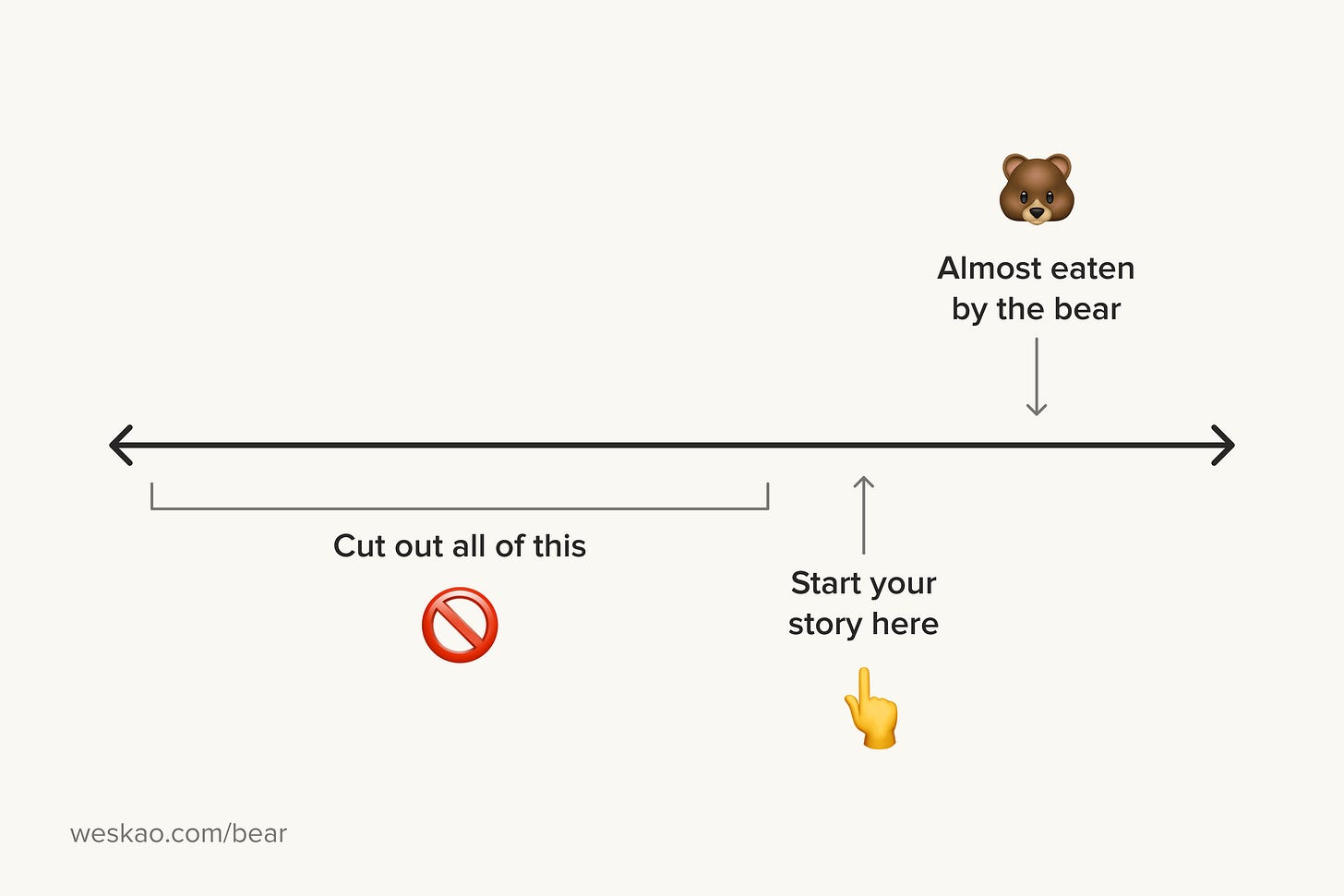
“A lot of stories, presentations, and pitches take too long to get to the point. When I’m explaining a situation, I remind myself to “start right before you get eaten by the bear.” This means to cut non-essential backstory so you can spend time on the juicy part.”
I think about this all the time. The idea itself isn’t new—the literary term (🤓) for this storytelling technique is in medias res, or ‘in the middle of things.’ But Wes Kao’s example makes it so much more memorable than a stuffy Latin phrase. Here’s how she describes it:
“For example, I can tell you a story about how I went camping:
Three months ago, I started looking at national parks.
Researched car rental options.
Purchased a Patagonia half-zip pullover.
Drove five hours to the park.
Set up our tent.
Finally, 30 minutes in, I say, “And on the last night, Steve left beef jerky out. We heard rustling outside. The next thing we know, we’re almost getting mauled by a bear.”
WHAT?
Start your story right before you get eaten by the bear.
When you think there’s nothing left to cut, cut some more. It will feel painful, but you’ll be surprised by how much more efficient and impactful your words become.”
Next time you’re trying to communicate something effectively, ask yourself: Is this backstory necessary, or can I just jump straight to the good part?
Insight via the legendary . Check out her full post for lots of helpful, practical examples.


In The Lincoln Highway, there’s a precocious kid who wants to write to write an epic autobiography.
He says something like “I want to start in media res, but I don’t know the end, so I don’t know where the middle is yet.”
I like that.
I'm gearing up for pitch meetings now. This is a great reminder -- thank you! And I'd like to throw this in -- I've found if I can be the one who finds that perfect moment to cut off the small talk and get to the meat of it, it's noticed favorably. I've actually gotten feedback about this -- I'm seen as more proactive, more of an idea-person.